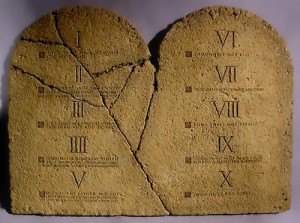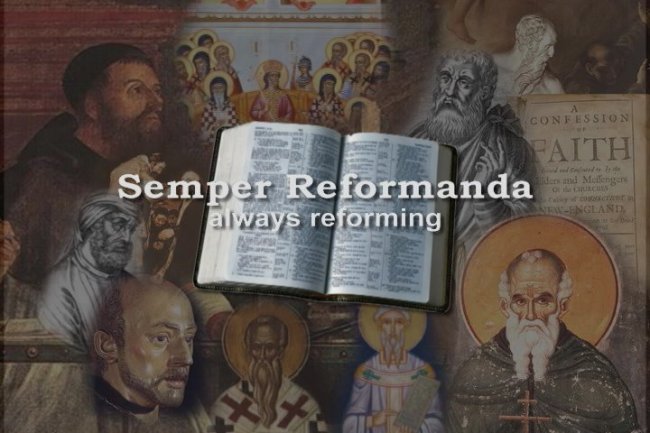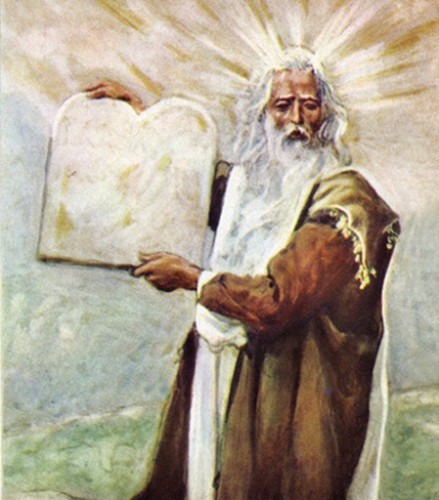The doctrine of God’s voluntary condescension goes hand in hand with the distinction that developed in Reformed theology between “covenanted” merit and “strict” or “proper” merit. Covenant merit is assigned to Adam in the covenant of works, whereas strict merit is assigned to Christ in the covenant of grace. What is the difference between the two? Covenant merit is a lesser category of merit when compared to strict merit. Adam’s merit is said to be “improper” when it is measured against the standard of Christ’s “proper” merit. This designation of covenant merit reflects the ontological considerations which pertain to Adam’s status. It seeks to take into account the Creator creature distinction and God’s act of condescension (WCF 7:1) to enter into covenant with Adam. According to the Confession, the establishment of the covenant of works is God’s appointed means of condescension, so that man as mere creature may know and enjoy God as his ultimate blessedness and reward.
…The merit of Christ, in contrast to Adam’s “covenant” or “improper” merit, falls uniquely into the category of “strict” or “proper” merit. Adam was a mere creature, and was dependent on God’s voluntary condescension to enter into the covenant of works. Jesus Christ, the second and last Adam, is uniquely set apart in his role as the Mediator of the covenant of grace. In the incarnation, Jesus is by nature true God as well as true man. He possesses a sinless human nature, which would qualify him (like Adam) to perform perfect and personal obedience. Christ was able to merit eschatological life in more than the “covenanted” sense. Our Savior, being the divine Son of God, is uniquely qualified to merit eternal life in the covenant of grace in the “strict” or “full” sense of the term.
This truth is implicitly taught in the Westminster Confession, where Christ is said to satisfy the justice of God and “purchase” (i. e., “merit”) the eschatological reward of the covenant for his people.
The Lord Jesus, by His perfect obedience, and sacrifice of Himself, which He through the eternal Spirit, once offered up unto God, has fully satisfied the justice of His Father; and purchased, not only reconciliation, but an everlasting inheritance in the kingdom of heaven, for those whom the Father has given unto Him (WCF 8:5).
The [Klinean] republication view teaches that man was in covenant with God at the very moment of creation. This is an important shift from the traditional viewpoint. Ontological considerations demand that there be at least a logical distinction (rather than a chronological or historical sequence) between God’s creating man and his entering into covenant with him. The [Klinean] republication teaching now erases this confessional distinction (which is based upon the “great disproportion” between the Creator and creature), and thereby turns God’s providential work of establishing the covenant into an aspect of the work of creation. Thus, we may say that the two distinct acts have been conflated or collapsed into essentially one act in this new view. For all intents and purposes, the relationship between God and man is not first that of sovereign Creator over his finite creature, but is from the point of creation a relationship of “God-in-covenant-with-man.” For Professor Kline and those who have followed his lead in the republication position, it is improper to even consider man’s existence apart from covenant. Thus, man’s covenantal status seems to “trump” his creaturely status. Professor Kline makes this clear in Kingdom Prologue.
Man’s creation as image of God meant, as we have seen, that the creating of the world was a covenant-making process. There was no original non-covenantal order of mere nature on which the covenant was superimposed. Covenantal commitments were given by the Creator in the very act of endowing the mancreature with the mantle of the divine likeness. …The situation never existed in which man’s future was contemplated or presented in terms of a static continuation of the original state of blessedness (Kingdom Prologue [2000], p. 92).
…The obliteration of the distinction between creation and covenant is extremely significant for laying the foundation of a new paradigm of merit—one that is divorced from ontological considerations.
We have already observed that the Creator-creature distinction lies at the center of the doctrines of God, man, and of the covenant in the history of Reformed theology. This distinction is also central to the traditional understanding of merit, as the differences between Adam’s covenant merit and Christ’s strict merit rest on ontological factors. It is apparent that the adherents to the Republication Paradigm have followed Professor Kline in their departure from the tradition in this regard.
… In this redefined view of merit, there is no longer any need or place for the previous distinction made between Adam’s covenant merit in contrast to Christ’s strict merit. In terms of the definition of merit, Adam and Christ can equally earn the rewards of their respective covenants according to the principle of simple justice.
It is also important to note another ramification of this new paradigm. Just as the respective obedience of Adam and Christ would be deemed equally meritorious according to the definition of “simple justice,” so also the works of others, beyond (or between) the two federal heads, may equally be counted as meritorious. The [Klinean] Republication Paradigm allows for only one category or definition of merit (“covenant merit”) which is applied equally to Adam, to Christ, as well as to other figures after the fall (such as Noah, Abraham, and Israel). This explains why meritorious works of obedience are possible for sinners between Adam and Christ in this new paradigm. The redefinition of merit “allows” God to make another meritorious arrangement outside of the ones made with the two Adams. After the fall, in the Mosaic covenant, for example, God may decide to make an arrangement in which he promises temporal-typological blessings on the basis of Israel’s imperfect, sincere, national obedience, instead of the perfect, entire and personal obedience which was required of the two covenant heads.
The redefinition of “covenant merit” does not require any ontological considerations. In fact, it does not even require moral perfection on the part of man. Thus, the fact that Israel’s works are those of fallen sinful creatures is completely irrelevant. They are meritorious because God says so. All that matters is that they fulfill God’s covenant Word, which alone defines and determines what constitutes merit and justice in any given covenantal arrangement.
Booklet on Merit
portions from pp. 32-42
Follow up post after this one.
https://rpcnacovenanter.wordpress.com/2014/08/14/creation-and-covenant-recast-and-collapsed-together/
“Further problems arise once this basic departure is discerned. One begins to see a metaphysical reworking of the categories of grace and justice in relation to the “covenant of nature.” Instead of a providential dispensation (see Shorter Catechism question 12), the covenant of works is turned into a creational entity which characterizes the natural relationship between God and man. Human morality is, in its very essence, made a covenant of works. Grace is only operative where sin abounds.” Rev. Winzer










You must be logged in to post a comment.